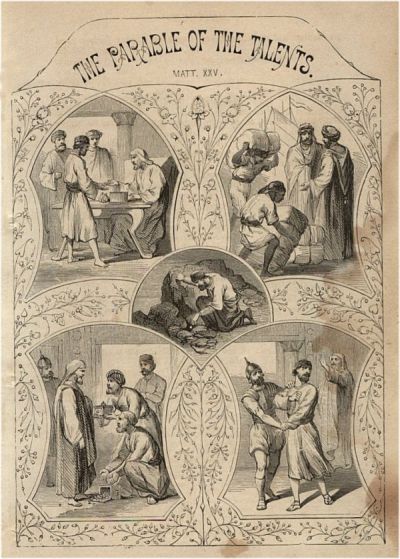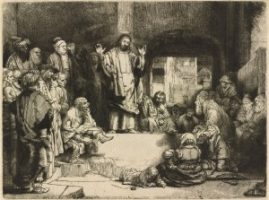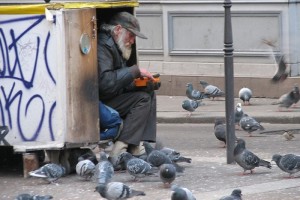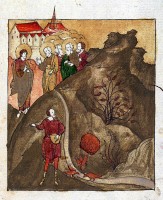 In the Name of the Father and of the Son and of the Holy Spirit.
In the Name of the Father and of the Son and of the Holy Spirit.
Today’s Gospel of the talents is perhaps well-known to us – but like any other Gospel, each time that we read it, new points strike us.
Firstly, we may notice that in this Gospel the Lord gives each of His servants a different number of talents. We are not equal to one another – we are different from one another. This does not mean that the Lord prefers one person to another. Simply it means that the Lord knows what is best for each one of us, and He gives, as the Gospel says, ‘to every man according unto several ability’. In other words, the Lord never gives us something to do which is beyond our ability, whatever we may demand of ourselves, He asks of us to cultivate only the abilities that we do have and that He knows that we have. Thus, He asks one who is clever with his hands to use them to make beneficial things out of cement, or wood or metal or some other material. He does not ask him to plan huge buildings. He who has to plan huge buildings, the architect, has been given gifts in mathematics and physics and drawing, and he himself may be quite unable to use his hands to make anything. In a similar way, I once met a famous composer who could not sing, and a famous singer who could not compose. The Lord gives each of us abilities and we are called to use them to do something for God. We are different. Our equality comes only from using our different abilities to an equal extent. Our equality is not in the values of this world, but spiritually, before the face of God, in the extent to which we use our various God-given gifts.
Secondly, this parable speaks of the man who was given only one talent which he went out and buried, failing to multiply it. When called to account, as we all shall be at the end of the world, he excuses himself for his laziness, answering the Lord: ‘I knew that thou art a hard man’. This is the answer of the selfish man, who has done nothing with his God-given talents, who has done nothing for his neighbour, but has kept his talent for himself, burying it. Unlike his fellow-servants, he has achieved nothing, on account of his selfishness.
Thirdly, this answer is also the answer of the sinful man, who always justifies himself, who always blames others for his failures. Self-justification is one of the worst sins, it is an aspect of pride, for it discloses the human heart which is so selfish, so locked up in itself, that it is incapable of taking blame, of recognising its own sin, of being humble and therefore willing to improve.
It is this sin which is most harshly judged, for which is promised casting out unto outer darkness and weeping and gnashing of teeth. This day, therefore, we should ask ourselves what we are doing with our God-given lives and our God-given gifts. Are we bottling them up, complaining that others are hard with us, or are we using them, in their different ways, for the building-up of the Kingdom of God?
Amen.
Source: Orthodox England




















